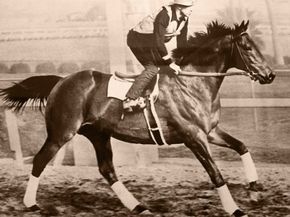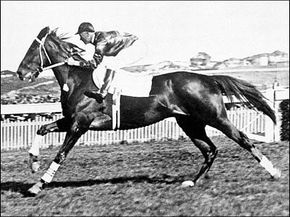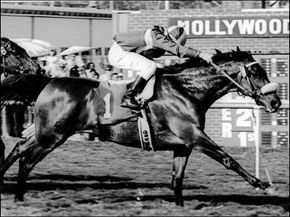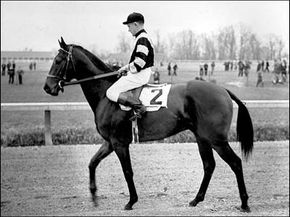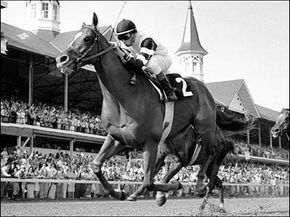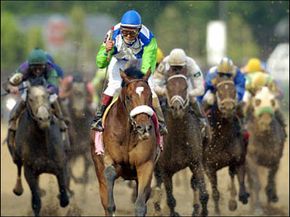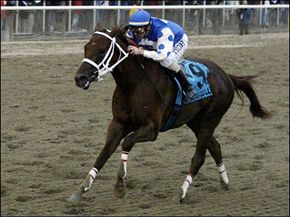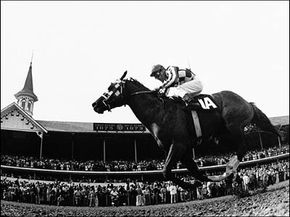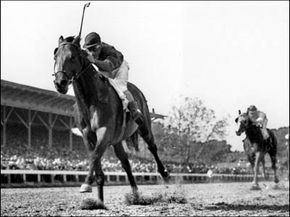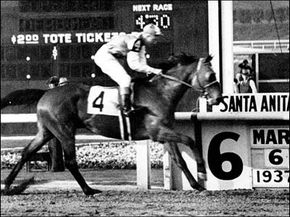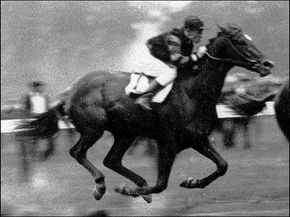The legendary Man O' War is credited for rescuing American horse racing in the 1920s. Born in 1917, he made his racing debut two years later, winning three stakes races in just 17 days.
Man O' War gained the reputation of being a "sure thing" in betting circles, which made other horse owners wary of putting their own horses up against him. In fact, Man O' War lost just one race during his career, the Sanford Memorial Stakes, largely due to early practices which involved the horses circling the starting line. When the race began, Man O' War had his back turned, but still managed to place second.
As a sire, he produced over 64 stakes winners and 200 champions - including War Admiral. One of his offspring also went on to sire Seabiscuit.
When he died in 1947, Man O' War lay in state for several days in a specially designed casket lined with his racing colors. He is buried at Kentucky Horse Park where a statue was erected to mark his grave. Man O' War has also been the subject of several books, and was inducted into the National Museum of Racing and Hall of Fame in 1957.
